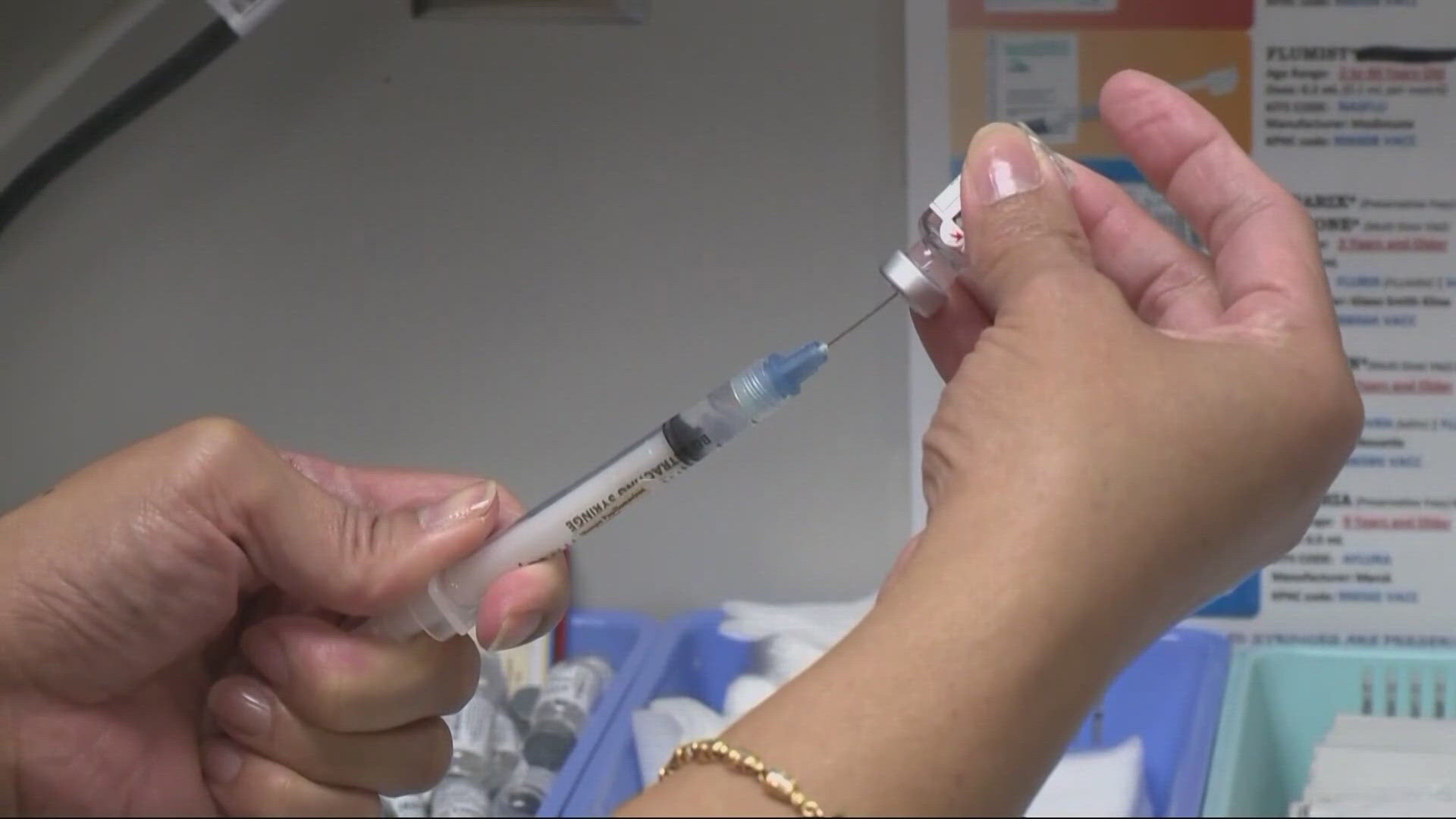SALEM, Ore. — The Oregon Health Authority logged 4,540 new and presumed cases of COVID-19 on Monday, according to a Tuesday news release, surpassing the previous single-day record by more than 1,000 cases.
The previous single-day record of 3,534 cases was logged last Thursday. Prior to that, the all-time single-day record had been 3,207 cases on Aug. 27, when the state was at the height of the delta surge.
Case numbers declined steadily through the fall months, and regular daily totals had fallen below 1,000 by the second week of December, but they began to rise quickly in the middle of the month as the omicron wave set in.
The state's seven-day moving average for new cases, which had also fallen below 1,000 in the first half of December, has been climbing rapidly and stands at 2,407 as of Monday.
The latest cases bring the state's total to 435,453. There were also 44 new deaths reported on Tuesday, bringing the state's total to 5,710.
There were 510 patients reported hospitalized with COVID-19 as of Tuesday, up from 498 the day before, and 111 COVID-19 patients in intensive care unit beds, up from 104 the day before. There were 59 available adult ICU beds out of 658 total as of Tuesday.
COVID-like symptoms prompted 12.5% of statewide emergency room visits at the peak of the delta wave in early September. The ratio declined steadily through the fall to a low point of 3.1% of visits in mid-December, but has climbed rapidly in the past two weeks and was at 8% as of Monday.
Different outcomes under omicron
Early data suggests the omicron variant tends to be less likely to cause severe illness and hospitalization, but it's also more contagious than any prior variant and better at avoiding the immune system's defenses and infecting previously vaccinated or infected people.
The United States reported a new record of more than 1 million cases on Monday, the Associated Press reported, although that figure may include lagging data from the holiday week.
Some experts, including Dr. Anthony Fauci, have argued that the hospitalization rate has become more relevant than the case rate because omicron tends to cause less severe illness on average, according to the AP report.
U.S. hospital admissions averaged 12,700 per day last week, according to the AP, which was a 46 percent increase from the week before but still below the peak of 16,500 reported about a year ago. Death rates have remained stable at about 1,200 per day for the past two weeks, the AP reported.
Public health officials in Oregon have warned that even with the lower rate of severe illness, the variant could still overwhelm hospitals due to the sheer number of expected cases, and have been urging Oregonians to get vaccinated and get booster shots in order to protect themselves from severe illness.
The latest forecast from Oregon Health and Science University predicted a peak of about 1,650 hospitalizations in Oregon from the omicron wave, likely arriving by the end of January. Oregon's hospitalization peak during the delta wave was 1,187, and hospital staff at the time said they were overwhelmed.



